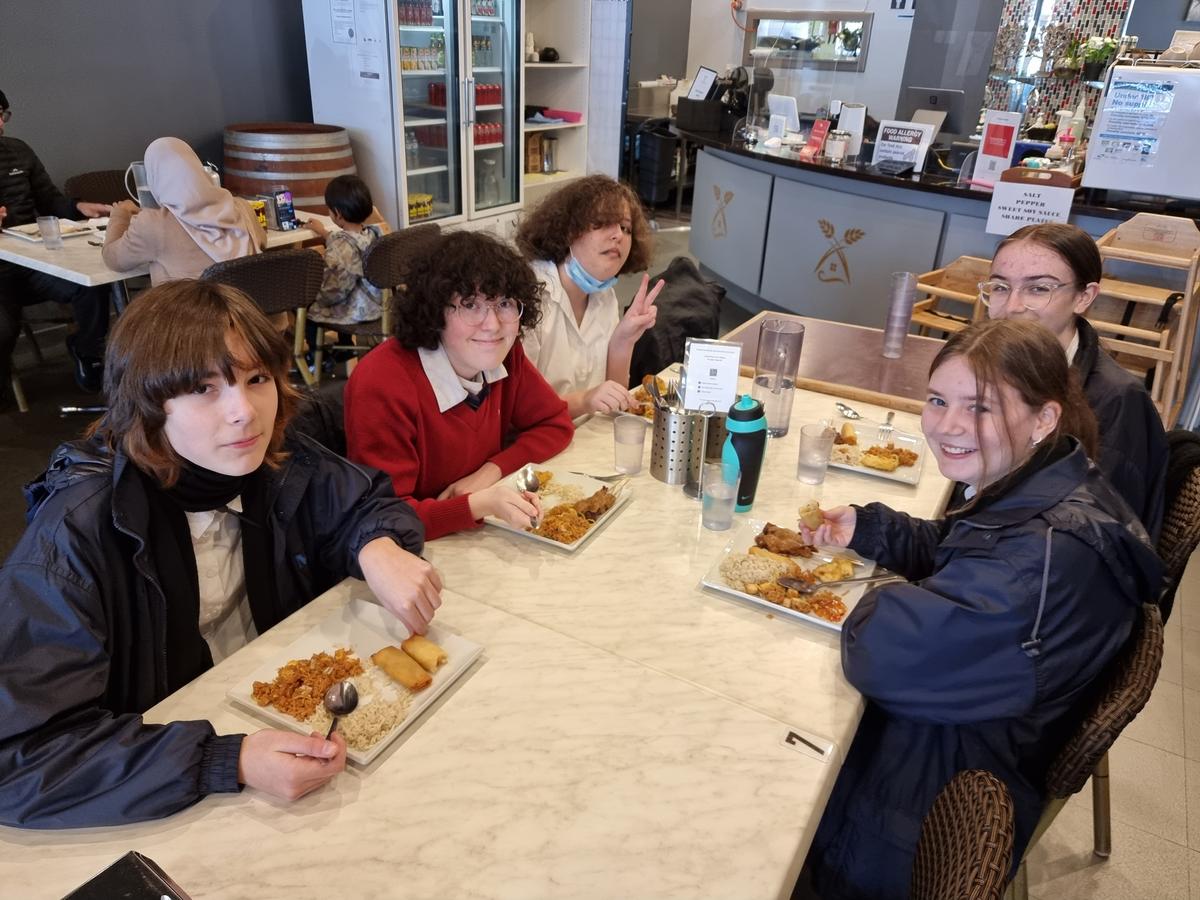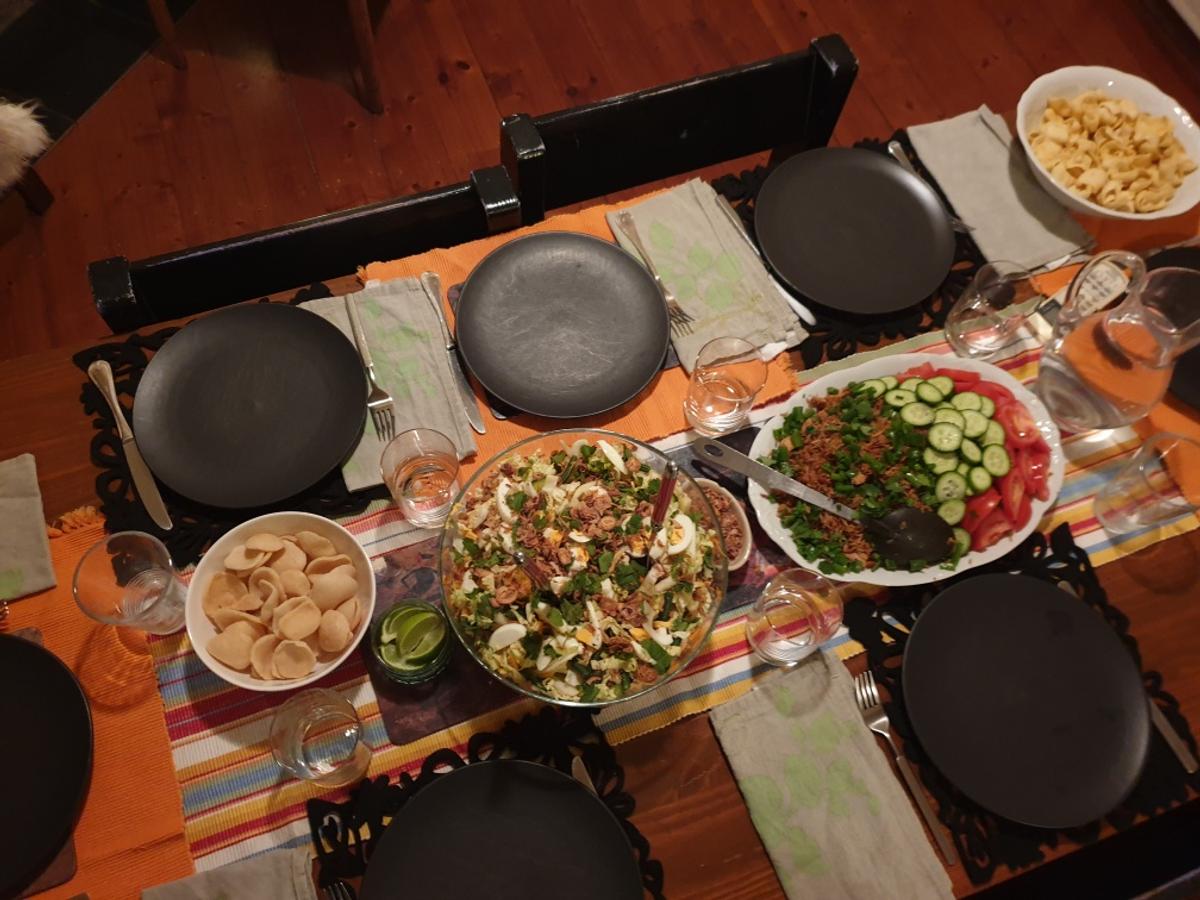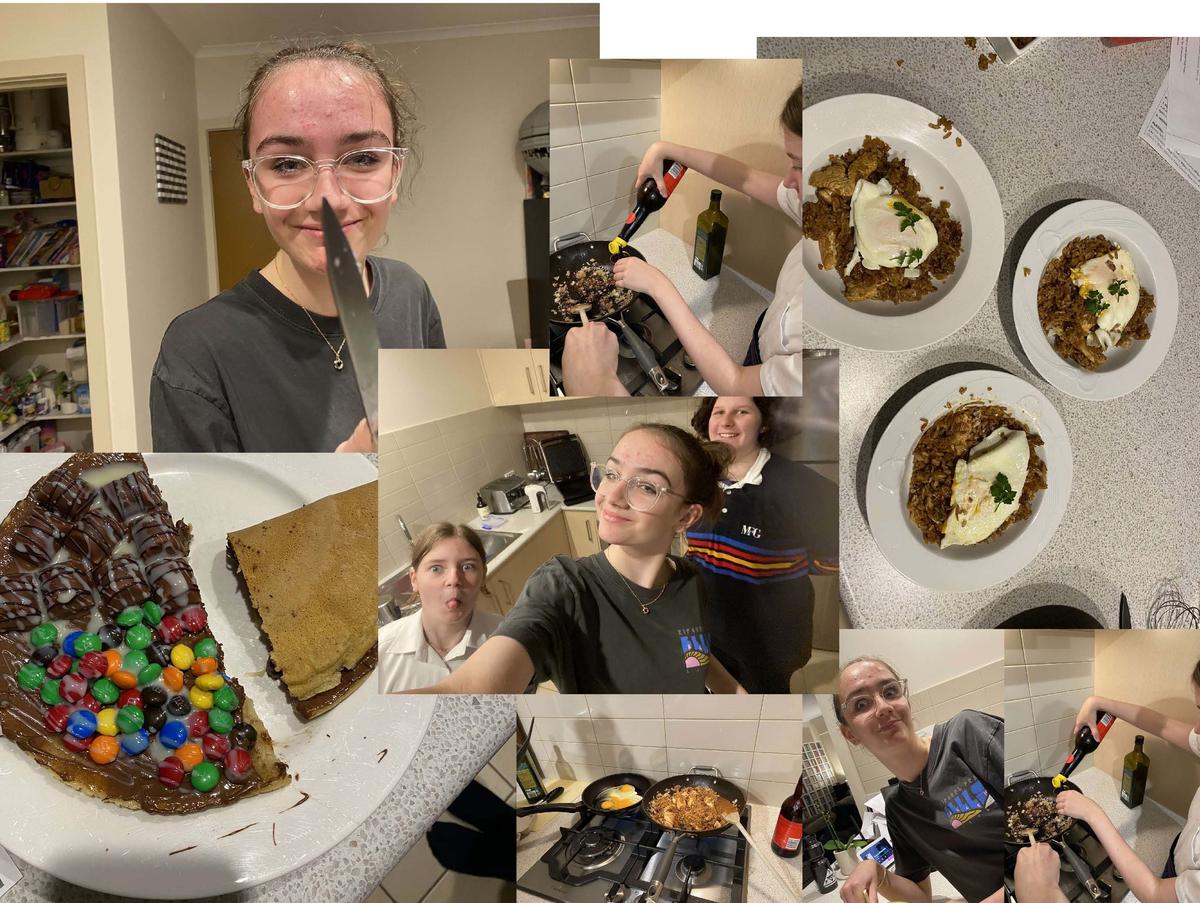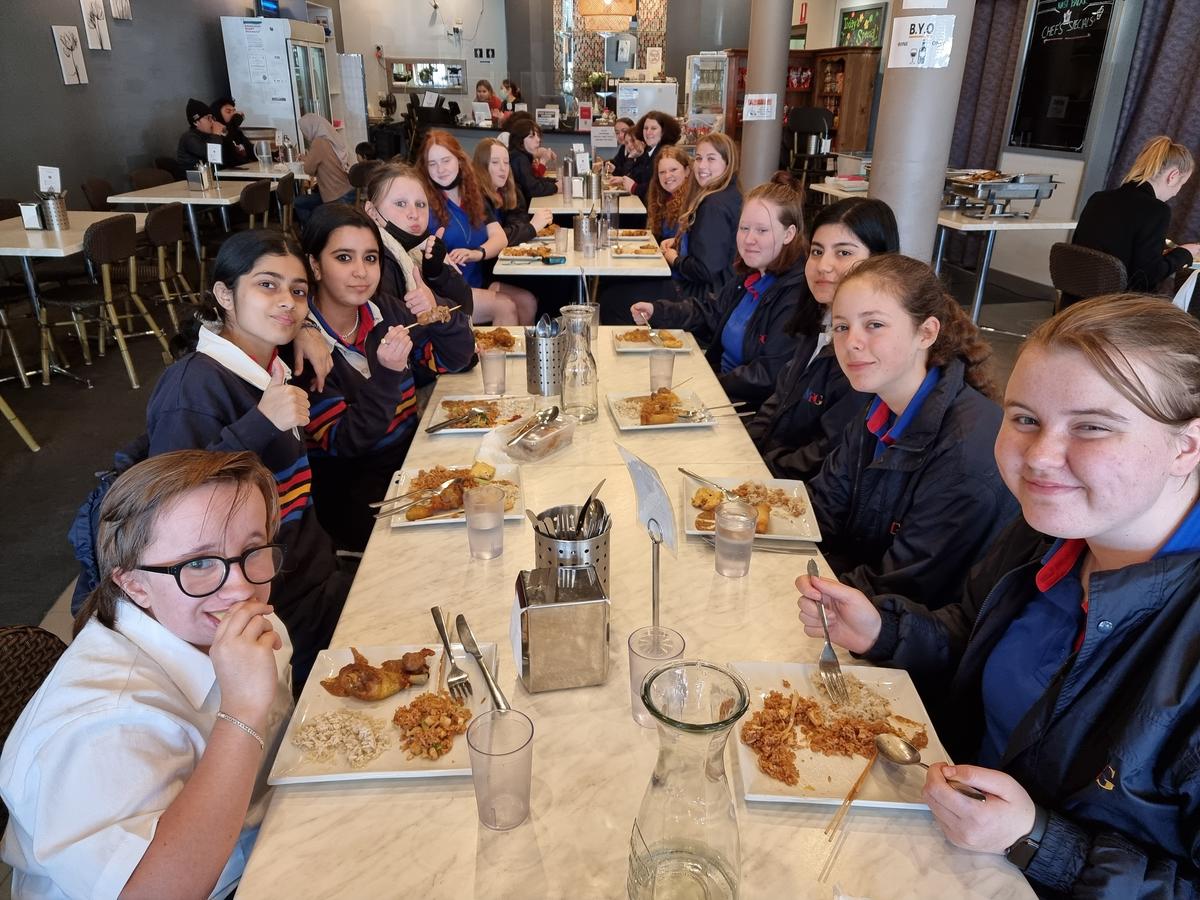Indonesian News

Indonesian Dress Ups
An essential part of learning a language is cultural exchange and appreciation. Learning to understand a culture that might be very different than your own is an important part of becoming a responsible and active local and global citizen, who is able to respect and celebrate difference and diversity.
Part of respecting and celebrating difference and diversity is understanding the difference between cultural appreciation and cultural appropriation. Appreciation is when someone is learning to understand another culture to broaden their world view and connect with others in an intercultural exchange. Appropriation involves taking one aspect of a culture using it for your own personal interest. At MFG we don’t just look at a different culture and say ‘huh, look at how they do things!’ Instead, we examine our own cultures as well and through self-reflection we can better understand differences and similarities between communities.
When looking at clothing, we can ask ourselves what our clothing says about us. How does it identify us as part of a group? Why do you wear what we wear – and why don’t we wear other things?
When looking at traditional clothes from Java, we can ask why everything is long-sleeved and ankle-length if the climate is so hot. We can wear a sarung or kain and see how it feels, and how we can move in these clothes. We can look into late 19 century Indonesian history, which tells us “The ideal Javanese girl is silent and expressionless with a little whispering voice which can hardly be heard by an ant; she must walk foot before foot and slowly like a snail, laugh silently without opening her lips; it is unseemly for the teeth to show, that is to be like a clown”, and we can compare this to our own histories and current day. On top of that, walking a mile in someone’s shoes can be fun, too!
Masakan Indonesia – Indonesian Cuisine
The year 9 Indonesian classes have had some exciting adventures with Indonesian food.
Students made a range of food for their families and friends, including nasi goreng, gado-gado, jus alpukat and martabak with cheese and chocolate.
As well as exploring exciting new tasks, we were very brave and tried durian. Some people think that durian has a pleasant, sweet fragrance, while others will shout that the smell is overpowering and unpleasant. The fragrance is certainly persistent and can hang around for a long time (which is why the guru were not allowed to keep it in the staffroom and Pak Ross might need to stop leaving it in the stairwell overnight!). Durian is also banned in hotels and on public transport services across Indonesia.
The smell evokes reactions from deep appreciation to intense disgust. The nineteenth-century British naturalist Alfred Russel Wallace described its flesh as "a rich custard highly flavoured with almonds". Our year 9s described it like this:
- Negar H: The taste was very similar to an onion, i think it was more the smell that gave it that onion taste and the texture was very different, a little like chicken. The smell was very unique it smells like rubbish and a gas leak mixed (I’m saying this in the most respectful way possible).
- Zay S: It reminded me of raw meat but i thought it was sweet and tasted mango - it didn't smell as bad as I thought it would.
- Hana M: It was so weird like I can't really describe the taste as it was something that I have never tried anything alike. It had numerous tastes such as eggs, onions and brains.
- Imogen S-H: It had a very interesting texture, almost like cooked onions. The taste was nice, I quite liked it, it was very creamy and sweet. I would compare the taste to a sweet fruit, melon, or like a pineapple, but I can't quite pinpoint my comparison. The smell wasn't that bad (I've smelled worse). It smelled like a sort of chemical, and I would say it was like a gas leak.
They also had the following advice for anyone who might want to try durian:
- Negar H: Be prepared for something very different, the inside also doesn't look how I expected it to.
- Jinx N: I would say that don’t let the smell put you off, it smells worse than it tastes. although I still didn't like it much
- Hana M: Try it at least once so you can show off that you have and when you try it, cover your nose, tilt your head back and just swallow it. Don't be that person who spits it out, just eat it.
- Imogen S-H: Don't be put off by the smell, it really doesn't taste that bad. It's all in you state of mind; if you think it will taste bad because of the smell, it will!
- Alice B: Definitely try it. It will be like nothing you have eaten before so it is a good experience, and then you can show off that you have had it.
A highlight of our food journey was a visit to Pondok Nasi Bakar, where we tried a classic range of Indonesian food like nasi bakar ayam, lumpia, tempe, sate ayam and nasi goreng.
- Sophie L-W: I liked the nasi goreng and the satay skewers the most. I'd never tried tempeh before, so that was a new experience for me. I'd recommend everything we ate that day.
- Pak Ross: I really enjoyed the fried food. It is a weakness of mine. The fried tempeh with sambal was delicious. The sate ayam (chicken on a skewer with peanut sauce) was really nice. 100% would recommend.
- Zoe M: Would definitely recommend it to a friend, when we got there the food was all ready and still very nice and warm, so you could tell it was fresh. They sat us at our tables and always made sure that the tables had enough water. I tried many new meals and I definitely loved them all.
- Bonnie M: It was amazing like I had the fattest feed ever. Everything just hit the spot when I took a bite into it. I don’t even like peanuts and I loved the peanut sauce.
- Yasmin S-D: All the foods that I tried at Pondok Nasi Bakar where all new to me. I found all the foods we tried to be a delight, but my favourite was the bumbu kacang otherwise known as the satay sauce or the peanut sauce.
- Jorge T: I took some food home for my mum but before I could give it to her, I ate it all it was so good.
Caroline Hall + Ross Kalla
Indonesian Teachers











